The Chinese ruling party needs a new pact with the people to forge a more humane and self-confident nation
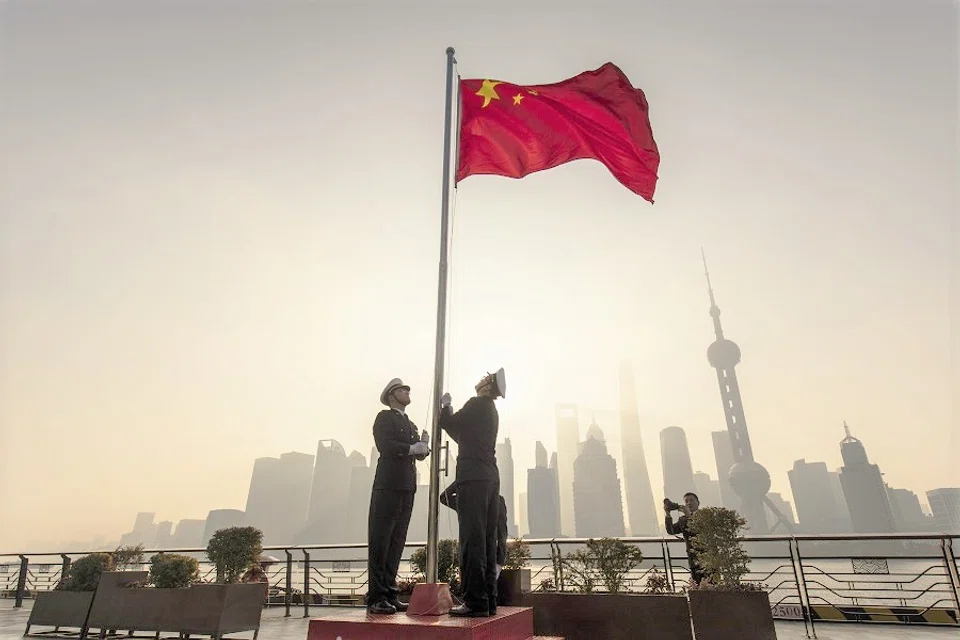
The third historical resolution recently adopted at the sixth plenary session of the 19th Central Committee of the Communist Party of China (CPC) upholds the integrity, continuity and almost all of the positive legacies of the CPC's 100-year history. The party's monumental achievements were paraded and its historical mission spelt out: After over 40 years of contention, feeling one's way around and wavering, the foundation has been laid for "unified thinking, unified will, unified action". A road map for the great work of China's national rejuvenation in the mid-21st century has been set out, a blueprint drawn, the programme of action formulated, and Xi Jinping's core position in the whole process has been formalised.
As a near-term blueprint and programme of action, it may suffice and have met the drafters' objectives. However, as was the case in the second historical resolution, the transitional nature of the latest resolution is obvious.
Firstly, while it sums up accomplishments comprehensively, it basically also steers clear of the frustrations, shortcomings and disasters in the history of the party. The stage is thus set for future controversies to resurface. This, I'm afraid, may suggest that there were different views being suppressed during the drafting process.
Secondly, the resolution comes at too high a cost. It solidifies and prolongs China's rapidly worsening international environment, because both the nature of the Chinese polity and its operational vision cannot win the mainstream countries' approval and acceptance.
Thirdly, it also reflects a dearth of common understanding within the country, which would make it difficult to take China and Chinese civilisation to their greatest heights. A long and complex process is probably still required for a consensus to be reached across the whole party and the entire populace. This underscores the necessity of a fourth resolution.
The unresolved controversies remain unresolved. The more in-depth conclusions that Deng Xiaoping was hoping for did not happen.
Towards common sense and humanity
In 1981 when the second historical resolution was adopted, Deng Xiaoping made it clear that it was preliminary and temporary. Different opinions and remaining issues needed to be set aside for decades before a clear view could be taken and final conclusions drawn.
Last year, after 40 years, the latest resolution was adopted, but it did not delve more deeply into the issues left over from the earlier resolution. Instead, it seems to have accepted the former wholesale, unmodified, as a matter of expediency. The unresolved controversies remain unresolved. The more in-depth conclusions that Deng Xiaoping was hoping for did not happen.
The second historical resolution had, among other actions, judged the Cultural Revolution in a harsh tone, but provided no incisive analysis for it, drawing only superficial lessons therefrom. The same was true with regard to other catastrophes in the history of the republic.
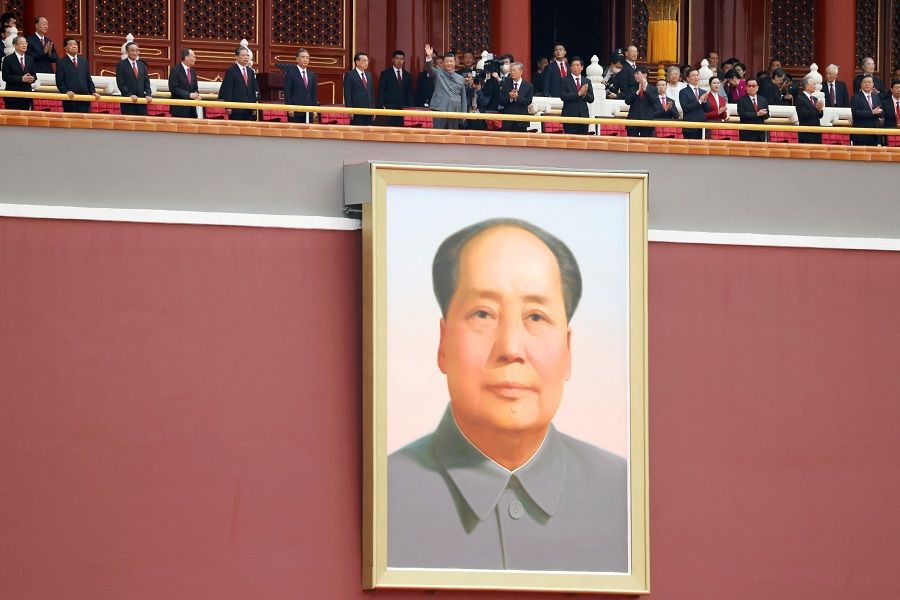
This shows that the CPC is presently still unable to give a solid answer to various criticisms, so it can only rely on the suppression of divergent opinions. The reason for such inability is precisely the lack of more open discussions and debates.
So, why the continued suspension of discussions? Probably because the Chinese political scene today is in fact going back to its old ways. There are full force efforts to inherit the legacies of the Mao Zedong era and to protect them. Under such circumstances, even objective studies and discussions are not allowed as any further analysis and criticism could jeopardise its political objective.
The resultant "historical nihilism" balloons as people fight historical nihilism with even more historical nihilism. This shows that the CPC is presently still unable to give a solid answer to various criticisms, so it can only rely on the suppression of divergent opinions. The reason for such inability is precisely the lack of more open discussions and debates.
Since there are no deeper discussions and analyses, there can be no clear idea on what should be discarded, what needs to be inherited, and what needs to be reforged and developed. To simply lap up everything on the plate increases the likelihood of making the same or similar mistakes. It also leaves systemic reform running in circles, without clear targets and hence incapable of making real progress. Why is this happening?
The reasons probably include the following: the need to uphold the legitimacy of the current regime, given that the CPC is to a very great extent defined by Mao Zedong; the Chinese people's genuine affection for Mao; the continued relevance of some of his ideas for the present national and international situation; that Mao is the only positive legacy with worldwide impact that the CPC can trot out; and possibly that the current generation of leaders have been shaped by the Mao era, such that they are still under the influence of some of Mao's ideas and spirit, and therefore lack an adequately discerning eye. All these factors have fed into the transitional nature of the latest resolution, and the necessity of the next resolution.
For the fourth resolution to come about, the joint efforts of a new generation (or generations) of the common folk and of leadership are needed. The new generation will have newer lines of thought, a broader horizon. They will be more connected to the new technological revolution, more tolerant, enlightened and self-confident. They will be blessed with better conditions and more modernised means to get a grip on the situation, more likely to put forth a new paradigm to lay the foundation for the systems and policies of the next level.
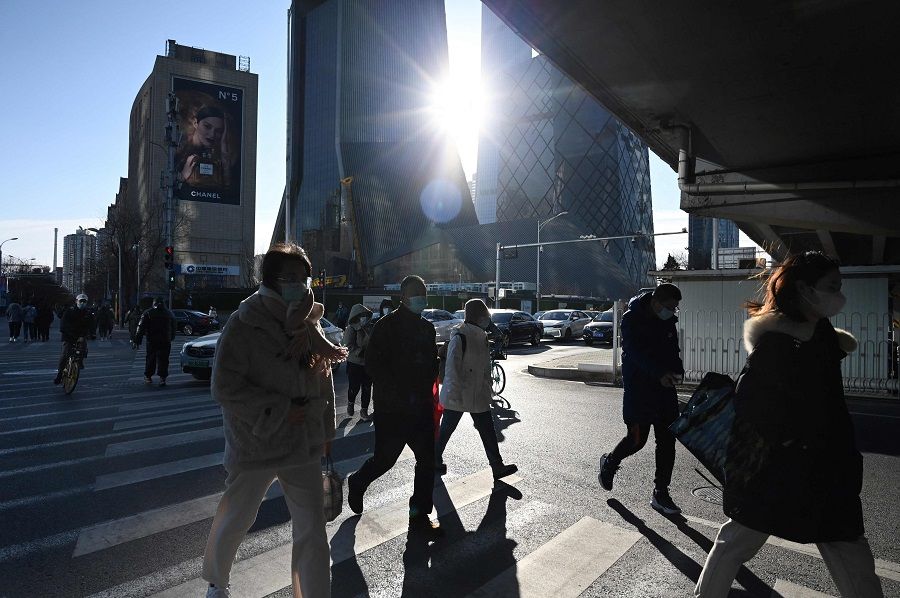
Abuses of the "great leader model" only made the whole mess worse. Today, with no acknowledgement of past mistakes, there is no way to build immunity to the failed model.
So, what should the fourth historical resolution achieve? In a nutshell, more common sense and humanity. The following aspects are to be of particular importance:
The opening up of historical baggage
To sweep negative historical events under the rug is a show of immaturity. The Great Leap Forward, the Cultural Revolution, the June Fourth incident and so on are all important events in their own ways. There are lessons to be learnt. As long as they have not been properly accounted for, the leftists will never quiet down, the rightists will never have peace of mind, the democratic nations cannot feel at ease, and these sticking points will continue to be the source of conflicts within and without.
Truth be told, the original ideas behind the Great Leap Forward and the Cultural Revolution were not grossly wrong to begin with. As remarked by Deng Xiaoping, they were meant well. That's the fundamental reason why Mao Zedong Thought still commands much vitality and power to rally the people.
Why did they become the great catastrophes they were? The main reason was the use of outdated revolutionary approaches which prized destruction more than construction. These approaches also overlooked human weakness. There was inadequate appreciation of the destruction the mass movements wrought in peaceful times, or of the harm that endless social campaigns and class struggles caused. Abuses of the "great leader model" only made the whole mess worse.
Today, with no acknowledgement of past mistakes, there is no way to build immunity to the failed model. There is, thus, the danger of repeating the same mistakes. The June Fourth incident represents another extreme use of force. Neither should it be swept under the bed.
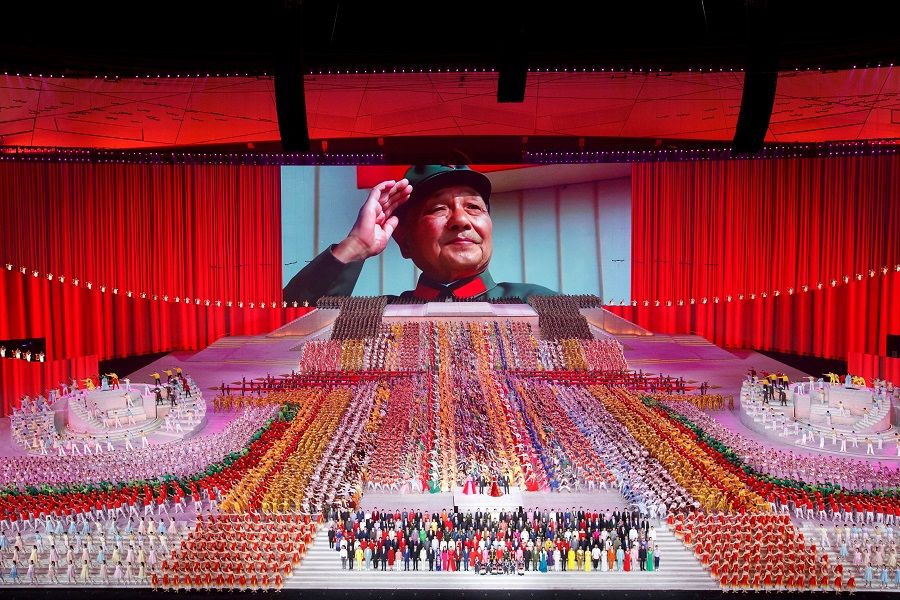
Many of the behaviours and political devices that once led to the disasters of the Cultural Revolution and the Great Leap Forward - the crude and vulgar, the fanatical and irrational - are clawing their way back from the grave under a different guise.
The modernisation of politics
The third resolution still smacks strongly of a sense of individual heroism. The "great leader model" obviously belongs to the past. In a complex modernised society, the omnipotent great leader can only be a fantasy, one which will increasingly be a hard sell to the people in future.
Moreover, the said model is a breeding ground for the "low-level red" (低级红, those who adopt a destructive and debased ideology) and "high-level black" (高级黑, those who resort to sophisticated schemes to undermine the party). Many of the behaviours and political devices that once led to the disasters of the Cultural Revolution and the Great Leap Forward - the crude and vulgar, the fanatical and irrational - are clawing their way back from the grave under a different guise. It's as if, after more than four decades of reform and opening up, the Chinese have not become wiser.
Both the 1980s' total denunciation of the Mao era and the current unconditional reverence for Mao stem from the same simplicity of thinking. The future fourth resolution should ban personality cult once again, put an end to the age of the great leader, steer politics towards secularisation, normalcy and modernisation, so as to truly lead China out of the era of imperial monarchy and revolution.
A common understanding across the entire populace
The presently popular slogan "Marxism can deliver" is akin to Biden's "Democracy can deliver", not just in form. They both assert something or impose on somebody arbitrarily, a methodology commonly used in "the Great Criticisms" during the Cultural Revolution.
Marxism may serve as a guide for historical trends, but it is no guidance at all in matters such as market operations, market economy, entrepreneurship, innovations, dealing with globalisation, building a harmonious society and so on. These are vital knowledge for bringing about an era of reform and opening up.
It has to be outlined, rationalised, modernised, and gradually reforged in the crucible of Chinese culture, so that Marxism can transition into something of a Confucian bent, on which basis the whole society may arrive at a consensus and covenant.
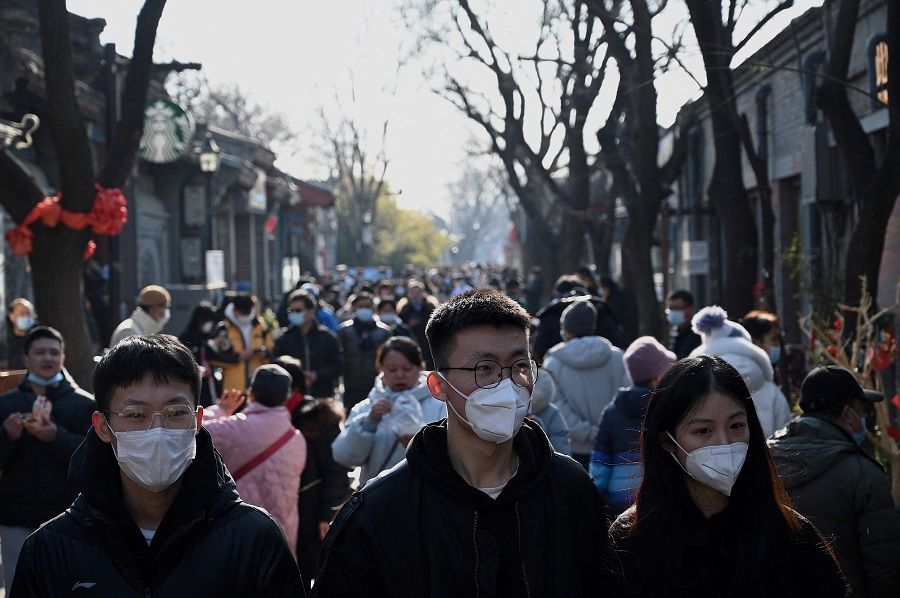
Misattributing China's success to Marxism distorts a great many things. Some of the CPC's oft-bandied formulations now sound wearisome. The resurgence of harsh dogmatism is a far cry from traditional Chinese culture's sublime ideal of "getting all things done by doing nothing" (无为而无不为).
This foreign ideology therefore must be reformulated. It has to be outlined, rationalised, modernised, and gradually reforged in the crucible of Chinese culture, so that Marxism can transition into something of a Confucian bent, on which basis the whole society may arrive at a consensus and covenant. When that is realised, leaders will have the self-confidence to relax their grip on society, which in turn will help foster a more humane and creative society.
Human dignity should occupy a prominent place in the value system of society.
Adjustments to the systemic structure
This means reimagining Chinese society, adjusting and remaking things on a fundamental level. The governance structure described in the third resolution is too tightly organised and needs high maintenance. There is much room for improvement in terms of price-performance ratio. Its idea of grassroots governance, in particular, places too much emphasis on control, pays too little attention to social or personal development, and is thus reminiscent of the baojia (保甲) system of bygone times, a military-style format of neighbourhood administrative control seen in imperial China.
The National People's Congress, the Chinese People's Political Consultative Conference, intra-party democracy - all these need to be redesigned to break free from historical baggage. Grassroots democratic self-governance should be greatly expanded and enhanced. Private enterprises and private property should be a normal part of the social structure, not eyed solely for their utility. The protection of the private should be conventionalised, normalised and made contractual. Human dignity should occupy a prominent place in the value system of society.
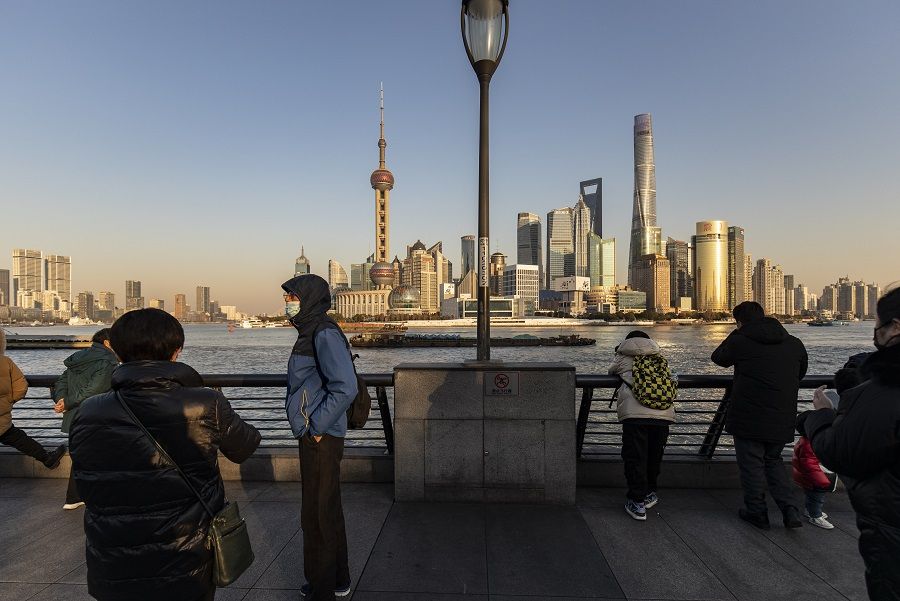
China should seek more common ground with other countries and be less obsessed with its own exceptionality i.e. "Chinese characteristics"...
Getting in tune with the world at large
This should be a major theme in the fourth historical resolution. The system described in the third resolution is strong on strictness but weak on people-friendliness. But this does not mean that the way to go is Westernisation. (That's because the West, now plagued by so many problems, will sooner or later cast off its sense of superiority, and begin to learn from other parts of the world, including China.)
Rather, the idea is to work towards convergence on human commonalities, so as to build a multifarious world of grand unity in the true sense. Right now, China is sliding towards a path of long-term standoff with the major countries. China is certainly not afraid to go there. It has the confidence and capability to stand on its own and pursue development. However, the price for taking this path is too high. There will be resistance on every front.
China should seek more common ground with other countries and be less obsessed with its own exceptionality i.e. "Chinese characteristics"; There should be more listening to well-meaning criticisms, more pan-humanism, and less verbal melees, nationalism and jumpiness over perceived slights.
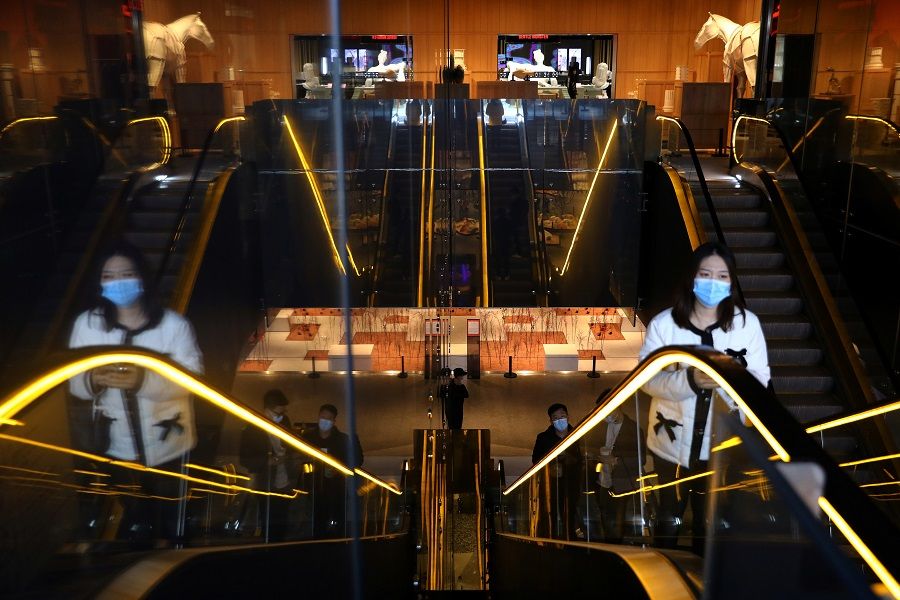
New model of party building
As a vestige of wartime and the age of a planned economy, the current model of party building is ill-suited to the realities of the market economy. Can its 95 million party members really demonstrate exemplary leadership? Does the market economy need such leadership in the first place? If it does, can non-party individuals serve the function thereof just as well?
Can the omnipresence of party organisations enhance socio-economic vitality and creativity, or will it have precisely the opposite effect? Will overpowering ubiquity level up the ruling party's control, or does it only serve to satisfy the desire of the powers that be for control, or to alleviate their anxiety over the loss of control?
And what about the plethora of party members and party organisations spread across the masses? Are they boosters for the party's prestige or just deadweight? When people ascribe everything bad about the party members around them to the party itself, is the ruling party becoming an "unlimited liability company"?
All these issues are in need of evidence-based research and should not be assumed. The fourth resolution should determine a new model for party building, revive intra-party democracy, give "party nature" (党性) and the party organisations more of a sense of humanity and rationality, restore term limit, as well as institutionalise successor selection and loosen the grip of social control.
Only by sorting out these issues can the CPC move on to the next level and acquire new life marked by maturity and certainty without sacrificing vibrancy. Should the fourth historical resolution be able to achieve one or more of the objectives outlined above, it would stand as a more important milestone than the third resolution. Before that happens, let's hope that the CPC does not run into big trouble in the meantime, and that it will have some enlightened resolve and make adjustments accordingly.
Related: Uniting China under Xi Jinping to build a modern socialist country: CPC to pass new 'historical resolution' at sixth plenum | Self-assessment: How will the Chinese Communist Party evaluate the Xi Jinping era thus far? | A new Cultural Revolution? Why some Chinese are shocked by the CCP's relentless pursuit of 'common prosperity' | Overseas culprits triggered Tiananmen incident; China will advance under Xi Jinping Thought: CPC's third historical resolution | The most outstanding of CCP leaders?
